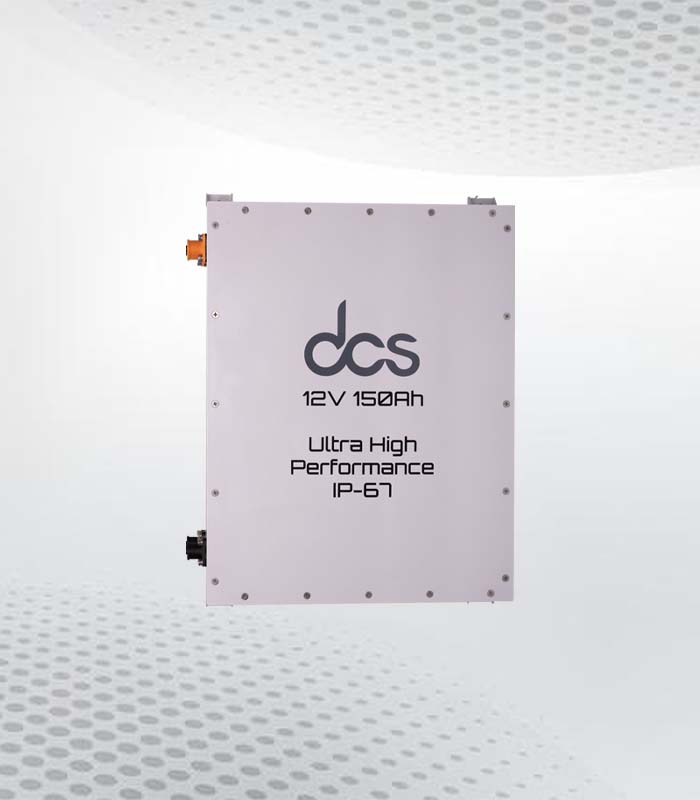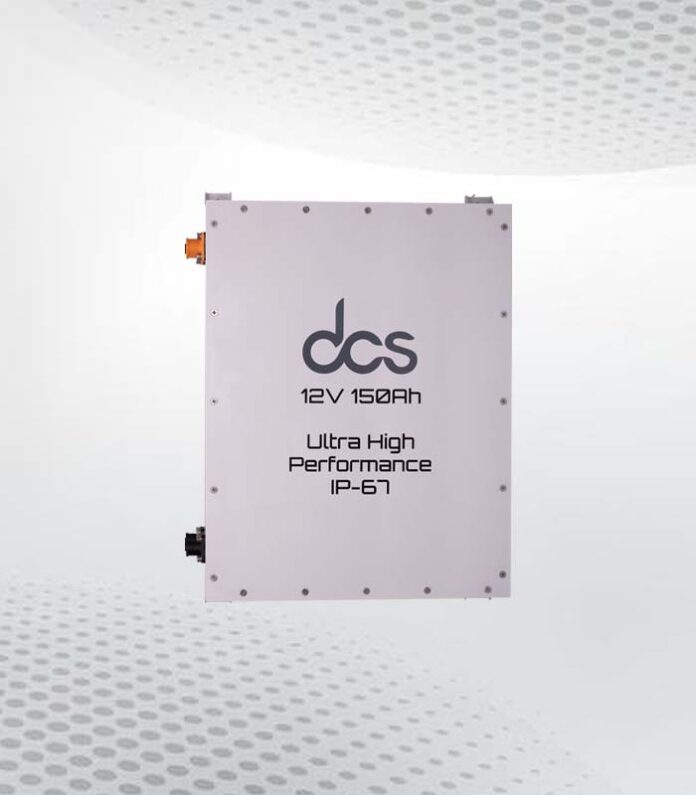Are you tired of constantly replacing your lead-acid batteries and dealing with their limited lifespan? It’s time to experience the power and reliability of a lithium iron phosphate battery 12v 100ah. This advanced technology offers a longer lifespan, faster charging, and superior performance compared to traditional batteries. Say goodbye to heavy and bulky batteries and hello to a compact and lightweight solution that can provide consistent power for your needs.
Unveiling the Basics of the Lithium-Iron Phosphate Battery 12V 100Ah
The lithium iron phosphate (LiFePO4) battery represents a significant advancement in rechargeable battery technology, utilising lithium-ion chemistry to offer a robust energy storage solution.
Characterised by its 12V 100Ah specification, this battery is engineered to support deep cycle applications across a broad spectrum of demands. The core of its appeal lies in its unique chemistry, which provides it with distinct advantages over traditional battery technologies, including an extended lifespan, superior safety, and an enhanced energy density.
LiFePO4 batteries are distinguished by their ability to maintain a consistent performance level throughout thousands of charge-discharge cycles, which marks a substantial improvement in terms of reliability and efficiency. This feature alone makes them a preferred choice for users seeking a dependable energy reserve that combines longevity with high performance. Their composition also ensures a lower environmental impact, as they contain no hazardous heavy metals, contributing to a greener energy solution.
As we delve deeper into the specifics of the lithium-iron phosphate battery 12v 100ah, it becomes clear that its design is not just about power provision but also about offering a sustainable and safe energy storage option that aligns with the modern consumer’s values and needs.
Exploring the Technical Specifications of LiFePO4 Batteries
Delving into the technical aspects of lithium iron phosphate batteries, particularly the 12v 100ah variant, reveals an array of features that underscore their appeal in energy storage applications. These batteries are noted for their compact form factor and lightweight nature, attributes that make them exceedingly suitable for both mobile and stationary uses where space and weight are critical considerations.
At the heart of their technical superiority is a high energy density, which allows for a more efficient storage and release of power, enhancing the operational capabilities of devices and systems they power. The lifecycle of these batteries further distinguishes them from alternatives, with the capability to withstand several thousand charge-discharge cycles with minimal degradation in capacity. This endurance is a testament to the robustness of LiFePO4 technology, ensuring users enjoy a prolonged and reliable energy supply, mitigating the need for frequent replacements.
Additionally, these batteries exhibit exceptional thermal stability, a trait that significantly reduces the risks associated with overheating and potential thermal runaway scenarios common in less advanced battery chemistries.
Technical specifications also encompass a broad operational temperature range, empowering these batteries to maintain optimal performance even under challenging environmental conditions. This resilience, combined with a swift charge rate, underscores their versatility and suitability across a diverse spectrum of applications, from renewable energy systems to critical backup power solutions.
Comparing Performance: LiFePO4 vs Other Battery Types
In a comparative analysis of battery technologies, lithium iron phosphate (LiFePO4) batteries emerge with distinctive advantages over their counterparts, including lead-acid and conventional lithium-ion batteries. A pivotal aspect where LiFePO4 excels is in its cycle life; it significantly surpasses lead-acid batteries by offering up to ten times the number of charge-discharge cycles. This translates to a markedly prolonged operational lifespan, reducing the frequency and cost associated with replacements.
Energy density is another arena where LiFePO4 batteries outshine. They provide a denser energy storage solution, ensuring a more compact and efficient power source for the same physical size, an essential attribute for applications where space and weight are critical constraints. This higher energy density does not compromise safety; on the contrary, LiFePO4 batteries exhibit remarkable thermal stability and a lower risk of overheating.
Furthermore, the operational temperature range of LiFePO4 batteries is broader, making them adaptable to a variety of environmental conditions without significant performance degradation. This robustness enhances their utility in applications from renewable energy storage to electric vehicles, where reliability across diverse climates is paramount.
In essence, when comparing lithium iron phosphate batteries to other types, their enhanced cycle life, superior energy density, and exceptional safety profile place them at the forefront of preferred options for a multitude of energy storage requirements.
The Multitude of Applications for A 100Ah 12V LiFePO4 Deep Cycle Battery
The versatility of the 100Ah 12V LiFePO4 deep cycle battery extends its utility beyond mere energy storage, serving as a critical component in diverse settings.
In the marine sector, these batteries prove invaluable, powering everything from small boats to large yachts, ensuring navigation systems, lighting, and communications remain operational even in remote sea regions. Similarly, the recreational vehicle (RV) community benefits significantly, with these batteries providing the necessary power for appliances, heating, and lighting during long journeys or while stationed off-grid.
In the realm of renewable energy, LiFePO4 batteries stand out as a superior choice for solar power storage. Their capacity to efficiently store solar energy during peak sunlight hours and provide a stable power supply during the night or cloudy periods enhances the viability of solar installations in homes, remote locations, and even in commercial settings. Electric vehicles (EVs), too, harness the power of these batteries for improved range and performance, illustrating the battery’s adaptability to the high demands of modern transportation.
Additionally, these batteries are increasingly adopted in emergency power systems and uninterruptible power supplies (UPS), providing critical backup during power outages and ensuring continuity for businesses, healthcare facilities, and essential services. The wide-ranging applications of the 100Ah 12V LiFePO4 battery underscore its adaptability and the integral role it plays in driving forward technological and sustainable solutions across various sectors.
Installation and Maintenance: Maximising Your Battery’s Life
To ensure that your lithium-iron phosphate battery 12v 100ah achieves its full potential and longevity, attentive installation and diligent maintenance are indispensable. Initially, the correct setup of the battery is paramount; it must be installed in a manner that aligns with the manufacturer’s guidelines to prevent any undue stress or damage. This involves securing the battery firmly to mitigate vibrations, a common cause of premature failure in mobile applications, and ensuring it is positioned in a location that facilitates optimal temperature control.
The environment in which the battery is stored plays a critical role in its lifespan. It should be kept in an area that remains dry and cool, away from direct sunlight and extreme temperatures, as these conditions can accelerate the degradation of battery components. Regular monitoring is also essential; inspect the battery terminals periodically for signs of corrosion or looseness, and clean them as required to maintain a good electrical connection.
 Moreover, it’s vital to adhere to the recommended charging protocols, using a compatible charger to prevent overcharging or undercharging, both of which can significantly impact the battery’s health and operational efficiency. Balancing the cells during charging can also enhance performance and extend the battery’s useful life. By adopting these practices, users can significantly influence the durability and efficacy of their lithium-iron phosphate battery 12v 100ah, ensuring it delivers optimal performance over many cycles.
Moreover, it’s vital to adhere to the recommended charging protocols, using a compatible charger to prevent overcharging or undercharging, both of which can significantly impact the battery’s health and operational efficiency. Balancing the cells during charging can also enhance performance and extend the battery’s useful life. By adopting these practices, users can significantly influence the durability and efficacy of their lithium-iron phosphate battery 12v 100ah, ensuring it delivers optimal performance over many cycles.
Understanding the Economics of a LiFePO4 Battery System
Whilst the initial investment for a lithium iron phosphate (LiFePO4) battery system may seem high, a detailed analysis of its economic implications reveals a more nuanced perspective, favouring long-term value and cost-effectiveness.
The superior durability of LiFePO4 batteries, capable of enduring several thousand charging cycles with minimal capacity degradation, fundamentally alters the calculation of cost per cycle, significantly reducing it compared to traditional battery options. This extended lifespan not only reduces the need for frequent replacements but also lowers the cumulative expense and inconvenience associated with battery procurement and disposal.
The operational efficiencies of LiFePO4 batteries further contribute to their economic appeal. Their higher energy density results in improved performance and reduced energy wastage, enabling more efficient power usage and storage, particularly in applications such as solar energy systems where maximising the utility of generated power is crucial. Additionally, the low maintenance requirements of LiFePO4 batteries eliminate the recurring costs and labour associated with upkeep, presenting a stark contrast to the intensive maintenance regimes required for lead-acid batteries.
Importantly, the environmental sustainability of LiFePO4 batteries aligns with the growing emphasis on green energy solutions, potentially qualifying users for incentives and subsidies aimed at promoting renewable energy adoption. When these factors are collectively considered, the economics of a LiFePO4 battery system highlight a compelling case for their adoption, based not only on immediate needs but also on a forward-looking assessment of value, sustainability, and efficiency.
Safety and Environmental Considerations of LiFePO4 Batteries
LiFePO4 batteries set a high standard in terms of safety and environmental stewardship, distinguishing themselves as a conscientious choice for energy storage. The inherent stability of lithium iron phosphate chemistry greatly mitigates the risk associated with overheating and potential fires, a significant advantage over traditional battery technologies prone to thermal runaway under adverse conditions.
From an environmental perspective, these batteries present a more sustainable option. They do not contain hazardous elements like lead or cadmium, which are prevalent in other types of batteries and pose serious environmental and health risks. Consequently, LiFePO4 batteries contribute to reducing the ecological footprint of energy storage systems, supporting the transition towards greener, cleaner energy solutions.
Their longer lifespan further enhances their environmental benefits by necessitating fewer replacements and thereby generating less waste over time. However, it remains important to engage with proper recycling practices at the end of their lifecycle to ensure these environmental gains are fully realised.
FAQs
How long does a lithium iron phosphate battery 12v 100ah typically last?
LiFePO4 batteries boast an impressive longevity, often capable of sustaining several thousand cycles. This durability largely hinges on the conditions of use and adherence to recommended maintenance practices.
Is it possible to utilise a lithium iron phosphate battery 12v 100ah for storing solar power?
Absolutely, these batteries are perfectly suited for solar energy storage. Their efficiency in energy density and cycle life makes them ideal candidates for capturing and storing solar power, facilitating a reliable energy supply even during periods without sunlight.
How safe are lithium iron phosphate batteries for everyday applications?
Safety is a hallmark of LiFePO4 batteries, attributed to their stable chemical composition. They are significantly less prone to overheating and do not present a risk of thermal runaway, positioning them as a secure option for a myriad of uses.
Conclusion
Wrapping up, the lithium iron phosphate battery 12v 100ah stands out as a formidable player in the realm of energy storage, marking a significant shift towards more efficient, durable, and environmentally friendly power sources. This battery type encapsulates the ideal balance between innovative technology and practical application, offering a myriad of benefits across a spectrum of uses.
This Article Was First Published On
| Other Good Articles to Read |
| Skank Blogs |
| Unreal Blogs |
| Tba Blogs |
| All City Forums |
| Dany Blogs |
| Refuge Blogs |
| The Music Blogs |
| Key Forums |
| The Big Blog Theory |
| Joe Blogs |
| Blogs 4 Me |
| Blogs Emon |
| Related Business Listings |
| Directory Submissions |
| Regional Directory |

